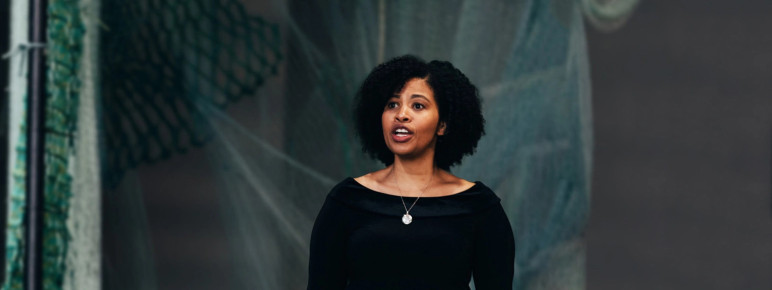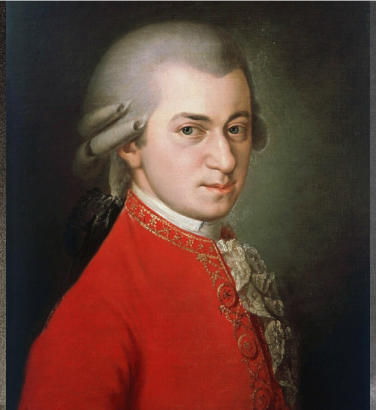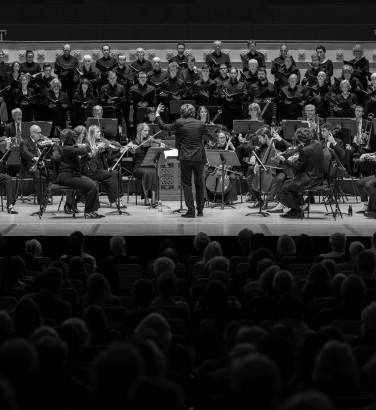
The reappraisal of Così fan tutte
1 Jul 2024
News Story
Taken on its own terms, the music of Così fan tutte – which the SCO performed as an opera in concert at the 2024 Edinburgh International Festival – should have guaranteed the success of this late Mozart opera. An endlessly inventive score, it shows the composer at the peak of his powers, exploring a wide gamut of emotions with only six characters (and a chorus which can be left out, without any great loss) and more than its share of showstoppers. Yet after a mere ten performances in its initial run, it all but disappeared from public consciousness until the 20th century. So what happened?
The opera's initial failure to make an impact is easily explained by the death of the Austrian emperor Joseph II in February 1790, at which point it had been given only five times. The court theatres immediately closed for a period of mourning. Mozart, uncertain of the new emperor’s favour and with his finances in a precarious state, spent the rest of the year seeking employment elsewhere, in the hope of improving his fortunes. In the circumstances, reviving Così would not have been a priority.
The opera fell further into obscurity when he died in December the following year. The 19th century adulation of Mozart had little time for the seeming frivolity of Così, a work conspicuously at odds with his posthumous reputation for musical perfection. Why would someone so inspired have wasted his time on a trivial plot, with such dubious morals at that?
Considered at face value, Così’s synopsis would be even more questionable today. Two soldiers, egged on by their old tutor, bet him that their fiancées will be faithful to them, no matter what. They pretend to be called up to the front before returning in disguise to woo the distraught women – who, after some resistance, each succumb to the advances of the other man. The deception is revealed and all four lovers are convinced to take it in good spirits.
If the Victorian age was scandalised at Così’s stance on women's virtue, the modern age would take umbrage even earlier, at the men’s intention to manipulate their other halves. There is clearly room for a thoroughly unpleasant take on Così, centred around the concept of misogynistic gaslighting. It’s an aspect few modern productions can afford to shy away from, but typically only forms part of the director’s approach.

Playbill from the premiere of Così fan tutte, on 26 January 1790
One of the keys to unlocking Cosi as something more than a overly simplistic farce lies in accepting that the final restoration of the status quo is highly unlikely: just as Fiordiligi and Dorabella would not meekly return to their original partners, so the two men cannot come through the experience unscathed either. Once we recognise that the couples cannot realistically revert to how we first saw them, a number of possible alternatives present themselves: a straight swap of partners, perhaps, or maybe there’s only one couple left standing as the curtain falls (though which one can vary considerably) … unless everyone goes their own way alone. Christophe Honoré, whose production was seen at the 2016 Edinburgh International Festival, goes so far as to give this supposedly comic opera a tragic ending.
Leaving aside the central quartet of lovers, what to do with the characters of Don Alfonso (the men’s tutor) and Despina (the women’s maid)? The former takes his bet with Ferrando and Guglielmo too far for any possibility of viewing him in a positive light, so his motives really come into question: is he aware of the devastation he causes, and does he even care? It is thanks to Alfonso that Despina is drawn into the plot, and her unwitting participation in the undoing of her mistresses can also result in all sorts of possible dénouements.
Given our own discomfort with the issues raised by Così, it is easy to appreciate the 19th century’s misgivings, which resulted in multiple attempts to sanitise the opera. They clearly had no problems with the music, which did however prevent any major changes to the characters; it was more a question of accounting for their actions in such a way as to make these more palatable. The addition of a brief scene of recitative in which Despina, having seen through the men’s subterfuge, reveals all to her mistresses, gave all three women the upper hand in one version. In another, Don Alfonso and Despina were recast as a sorcerer and his sprite, taking away the lovers’ responsibility for their actions in a way that makes Così sound oddly like A Midsummer Night’s Dream.
The first inklings of a revival of interest in the opera as originally conceived wouldn’t come until nearly a century after its premiere. Richard Strauss is credited with having brought this about by putting it on in Munich in 1897, but it had already been conducted by Gustav Mahler in 1886, in Prague – and the latter went on to programme it for a run of nine performances at the Vienna State Opera in late 1900, so it’s a little debatable. Così was reintroduced to Britain in 1910, by Thomas Beecham, and its inclusion in the very first Glyndebourne Festival in 1934 was a further step in rehabilitating its reputation in this country.
As for the reasons behind the turnaround in Così’s reputation, perhaps it is quite simply a question of having had to wait a very long time for the moral outrage to subside. Only then could the original work be re-examined afresh, giving it a better chance of being appreciated for what it is: a representation of a world in which absolutes (moral or otherwise) are shown not to exist – however much we might wish them to.
Related Stories
![Three men, the first two in 18th century formal dress (one in black and white, one in a red coat), the last in an old photo, smoking]()
What is a sinfonia concertante?
17 March 2025
We delve into the history of a hybrid genre ...![]()
The SCO Chorus on music for Lent
10 March 2025
With Easter just around the corner, we delve into perhaps the richest (and often darkest) choral repertoire of all ...![]()
The bassoon concerto
3 March 2025
For the last article in our concerto series (for now), we turn to an instrument too often dismissed as the orchestra's resident joker.


